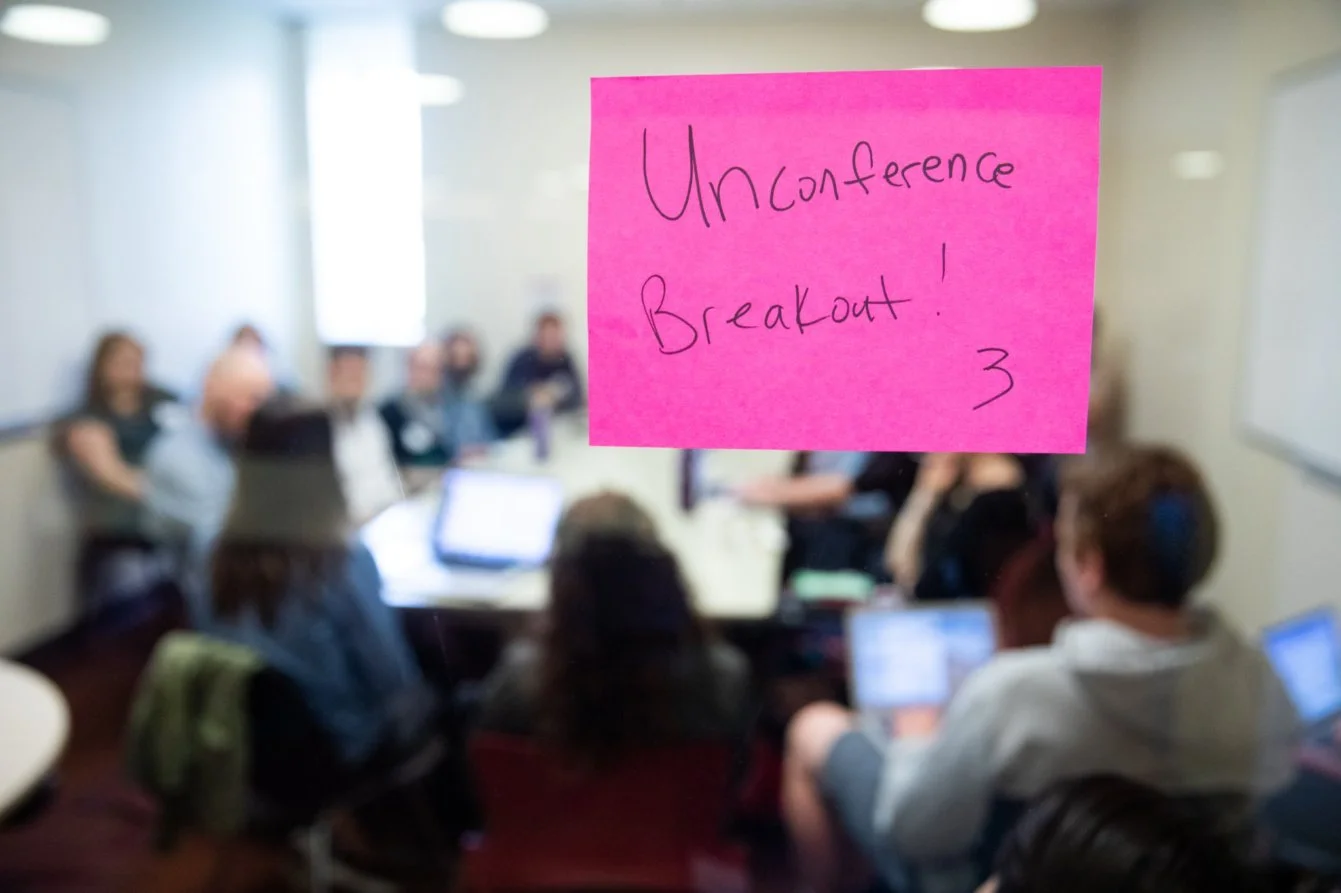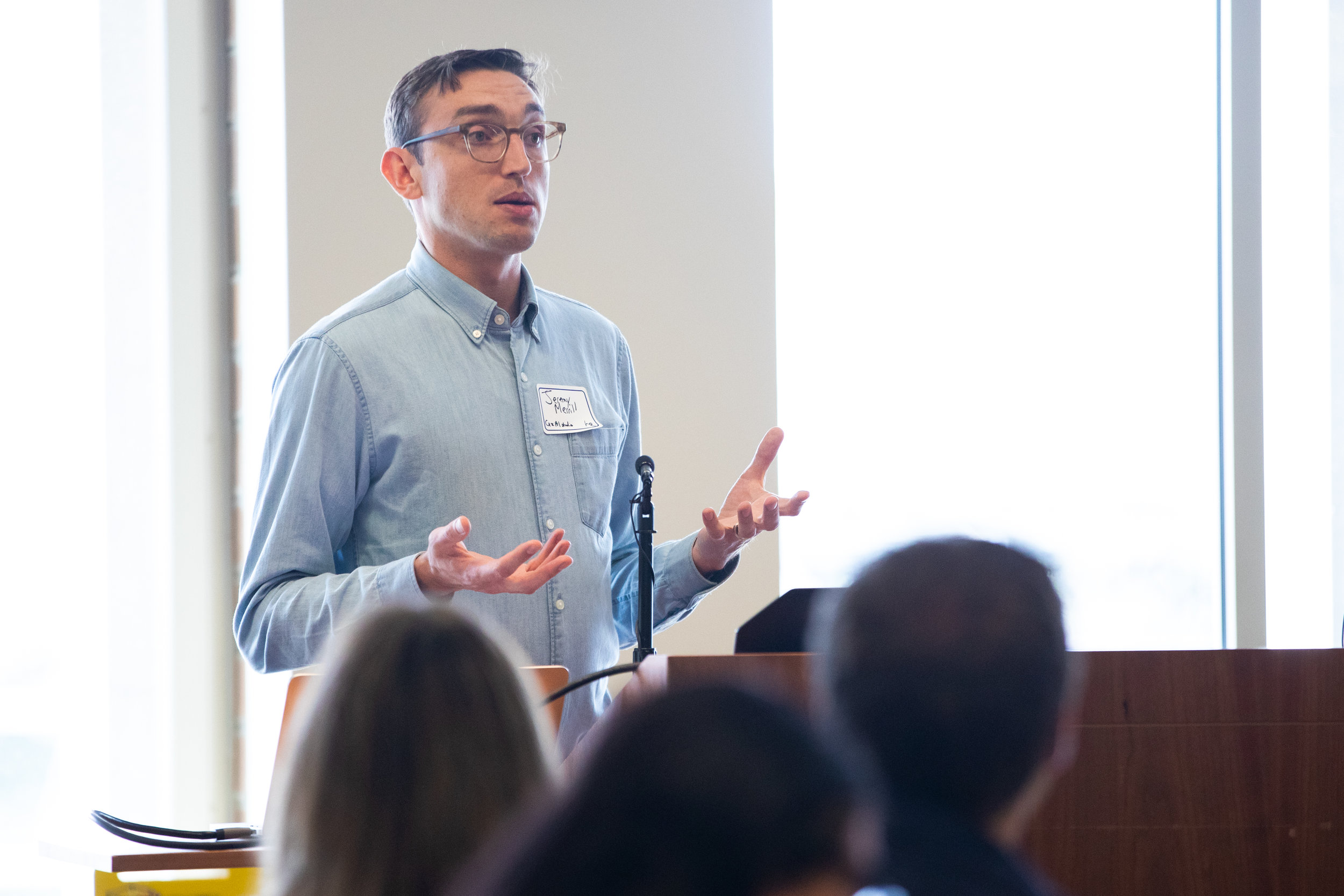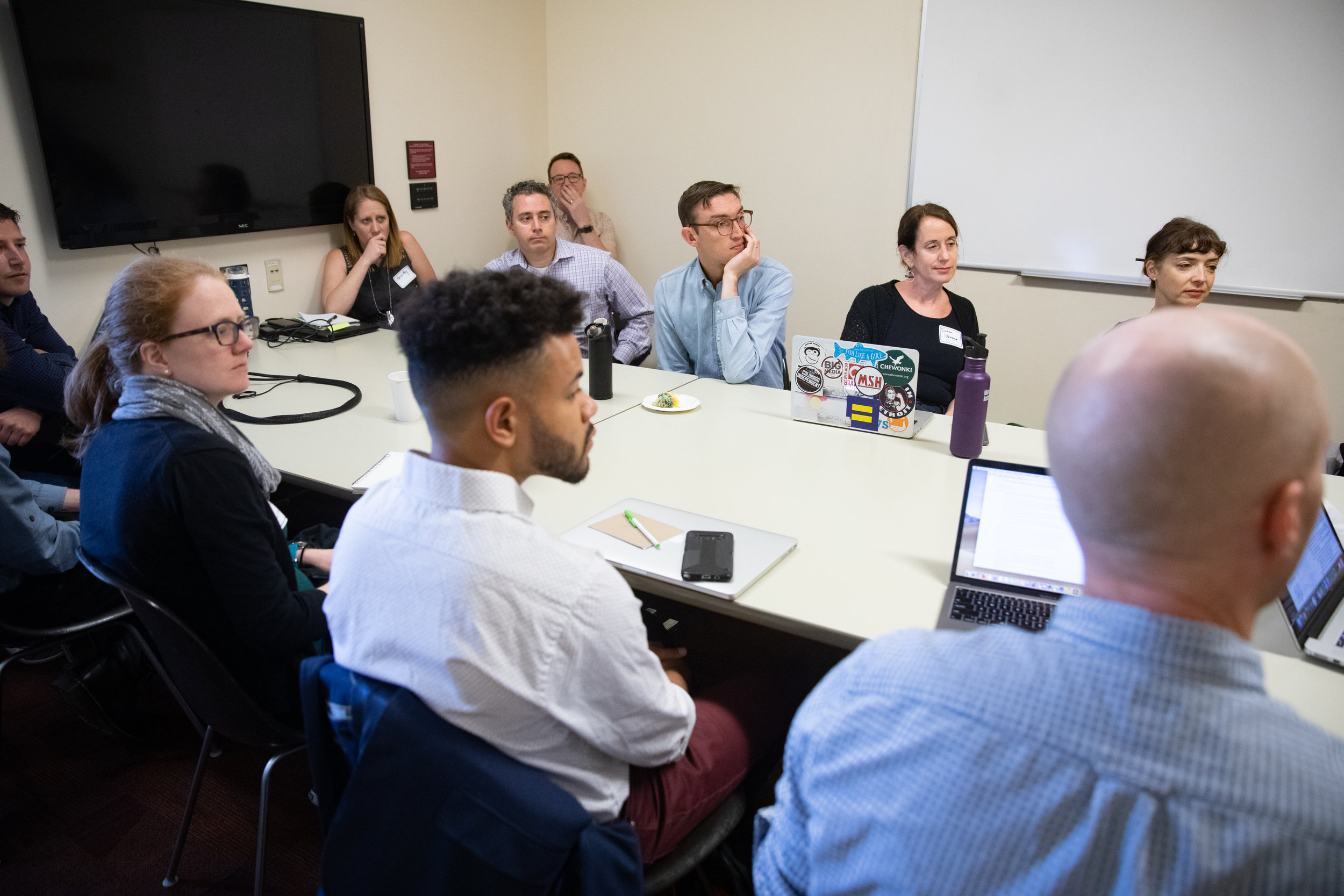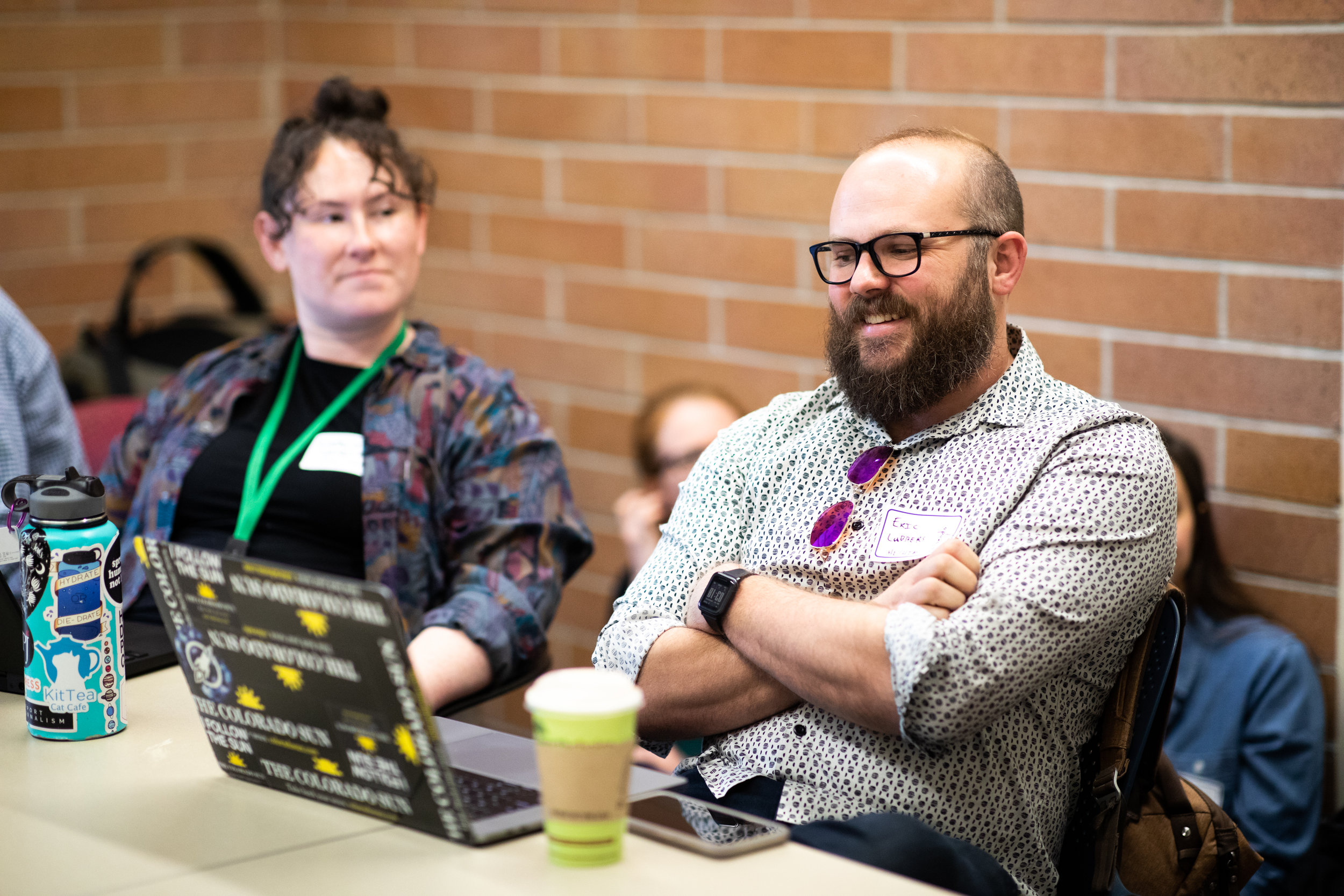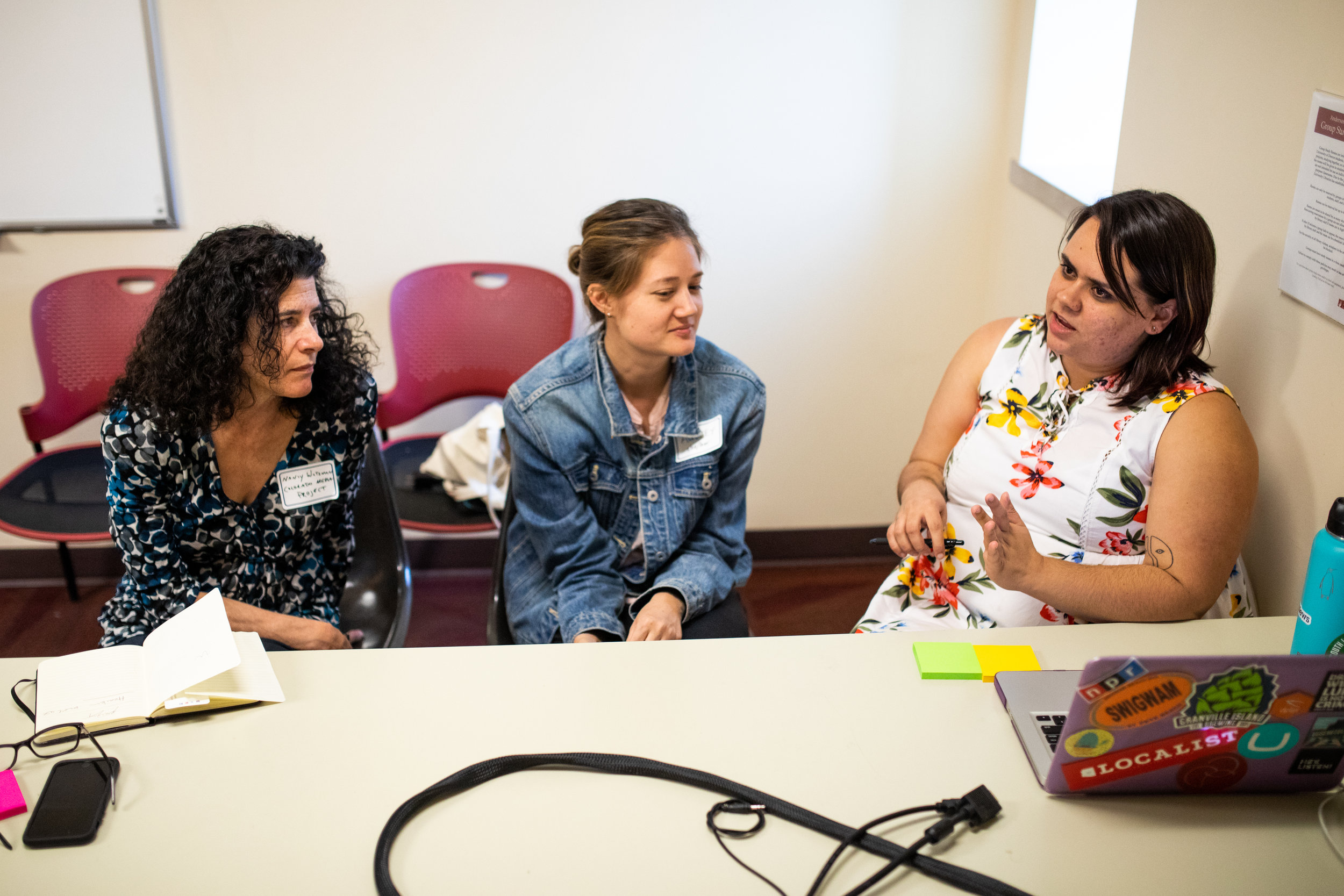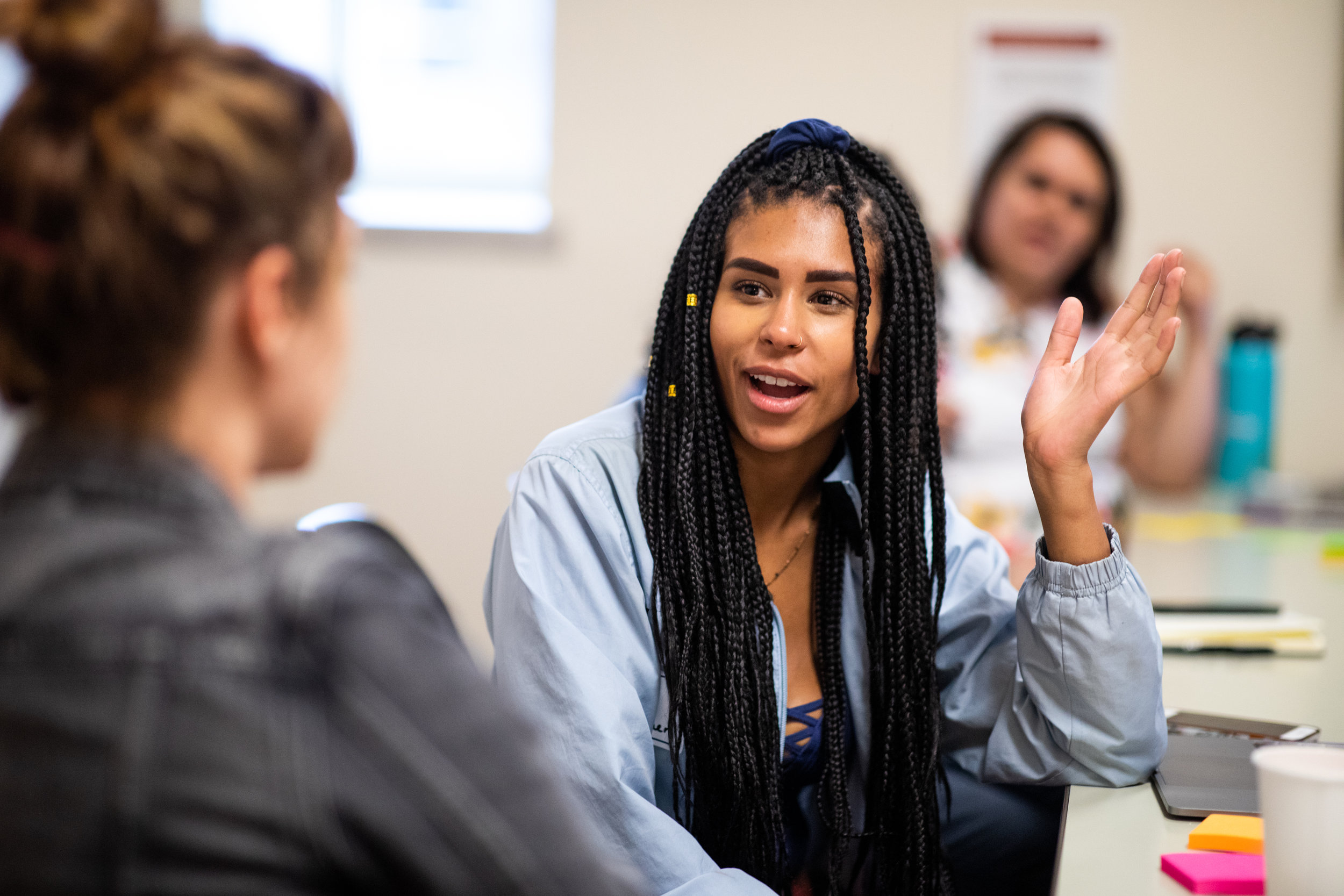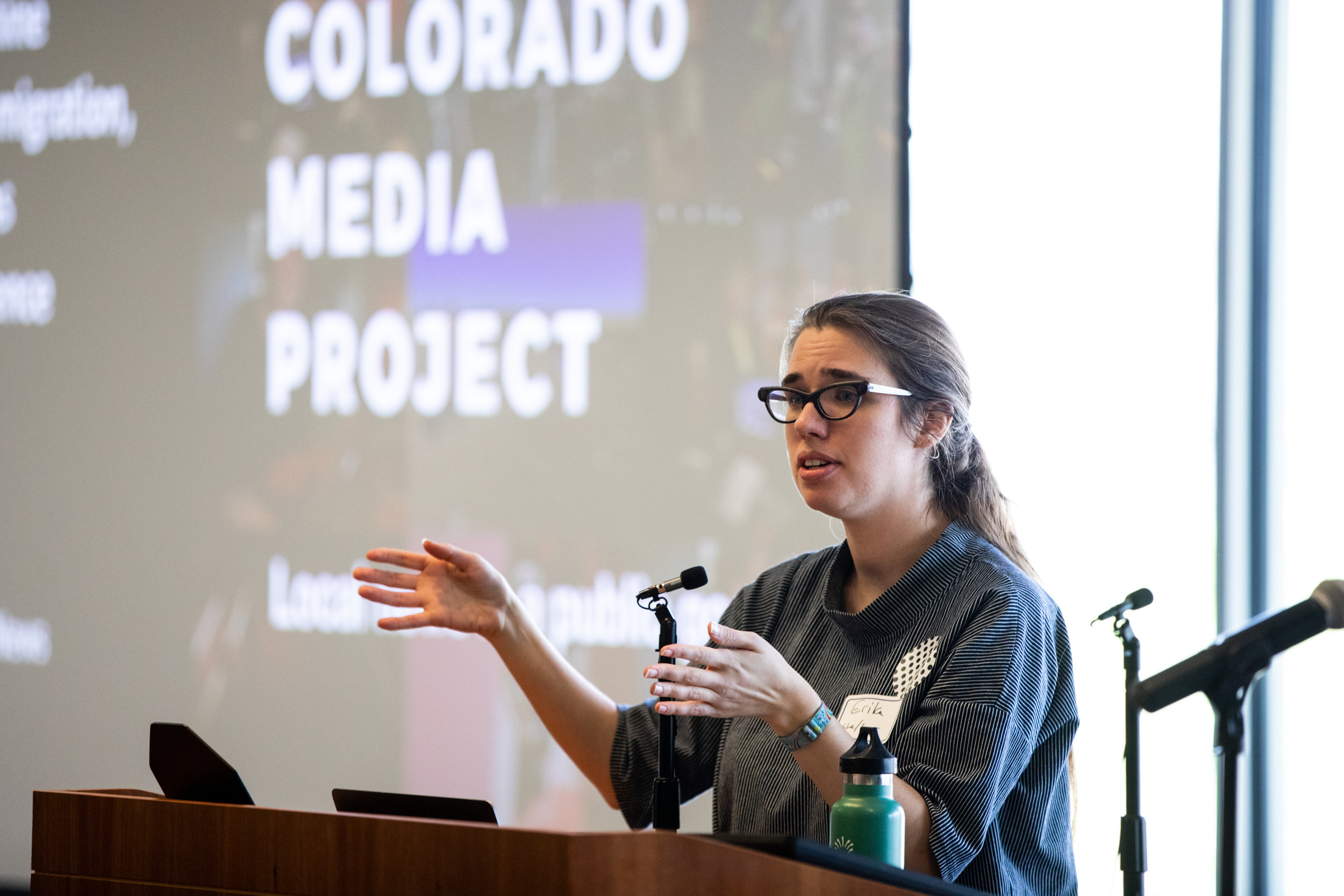Local journalism's business model may be broken, and many outlets are facing severe challenges. But anyone who believes these issues herald the demise of superb local reporting need only spend time with some of the passionate journalists at traditional and startup outlets across the land.
We were lucky enough to host several dozen such inspiring journalists from Colorado and beyond, many in the early stages of their career, on May 6 at the University of Denver. M3: Machine Learning, Migration, Mountains Journalism Unconference.
This daylong event cosponsored by the Colorado Media Project, OpenNews, and University of Denver, drew journalists from states as far flung as Vermont and Florida. Many of them were data specialists, who attended the ‘unconference’ to share ideas and gain inspiration from one another. Colorado outlets represented at the unconference included the Colorado Independent, Longmont Observer, Chalkbeat, 5280, Vail Daily, and the Colorado Sun, and Colorado Public Radio.
At an unconference, participants play a more active role than at a more traditional conference. At M3, a few sessions were prescheduled, but most were designed on the fly by attendees, based on their interests in concerns in real time.
One scheduled session focused on planning for a fall Migrahack, which will take place September 27 & 28. Migrahack will bring together journalists, academics, developers, data scientists and immigration experts to work together to bring to the public contextualized, compelling information on one of the most divisive issues of our time. Visit the organizing website here: https://portfolio.du.edu/migrahackco.
Lynn Schofield Clark, professor, chair and director of the Estlow International Center for Journalism and New Media at DU led the Migrahack session. Clark is one of the driving forces behind the Migrahack, and came away from the unconference session with a trove of new ideas to pursue.
Among them: Looking at data on migrant farmworkers; using Transactional Records Access Clearinghouse (TRAC) data from the University of Syracuse to track the rate of Colorado deportations; examining the farmworker pipeline between Colorado towns and specific villages in Mexico and Central America.. Colorado Media Project will be working with local news organizations on these ideas and more to prepare for the September event–stay tuned to hear how to become involved.
A popular spur-of-the moment session focused on how journalists establish daily, weekly, monthly and quarterly routines to do their work efficiently. Given the plethora of online planning tools, some journalists said they had developed intricate systems to keep track of ideas, assignments, data work, and routine meetings. Others said they wished they could get their editor to meet with them for five minutes once a week. The lively conversation never flagged over the course of an hour, and would have gone on longer had lunch not intervened.
“My daily routine is I come in and people immediately start bothering me,” laughed Audrey Carlsen, a data reporter at The City, a startup news site in New York.
“My daily routine is I come in and immediately start putting out fires,” said Brent Jones, a data and design journalist at St. Louis Public Radio.
The unconference version of a keynote was delivered by Jeremy Merrill of the Quartz AI Studio. Merrill promoted machine learning (or artificial intelligence) as a transformative time-saving tool for journalists working with datasets or document stacks large or small.
Merrill used a metaphor to describe artificial intelligence’s usefulness to a reporter:
“Say you have a new colleague, just hired, who has never worked on your beat. He doesn’t have a lot of common sense, and he’s not that smart. What kind of stuff can you have him do?” One answer: look for patterns, keywords, and commonalities in large amounts of text.
Building AI programs needn’t be overly complicated, and the datasets needn’t be huge for AI to be useful, Merrill said. Anyone who has ever thought “I’ll never be able to sort all of these documents,” or “I’ll never be able to read all these documents,” or even “I’ll never be able to find the images that show this particular thing,” might be good candidates for using AI on reporting projects, Merrill said.
The day ended with a rousing, well-attended happy hour at a local brewery, with the “first draft” courtesy of the Colorado Media Project.
Photo credit: Alyson McClaran. for Colorado Media Project, Creative Commons license, please share with attribution.

